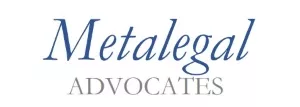- within Insolvency/Bankruptcy/Re-Structuring, Government, Public Sector and Criminal Law topic(s)
- with readers working within the Law Firm industries
The trend of undervaluing imported goods, for the purpose of evading customs duty or for other ulterior purposes, has been on a constant rise. Finance Act, 2022, amended section 14 of the Customs Act, 1962, with the intent of addressing the issue of undervaluation in imports. Now, the Central Government has notified the Customs (Assistance in Value Declaration of Identified Imported Goods) Rules, 2023 (CAV Rules, 2023) which shall come into force from 11th February 2023, to tackle the menace of undervaluation of imports.
I. INTRODUCTION
The CAV Rules, 2023, issued under section 14 of the Customs Act, 1962 ('Customs Act') provide for the constitution of a Screening Committee and an Evaluation Committee, which have been assigned with the responsibility of identifying certain goods which are being undervalued generally so that appropriate procedural checks may be laid down for field offices to perform while assessing the imports of such goods. The Rules lay down a detailed procedure for the identification of such goods, besides having provisions for exemption from and expiry of such identification.
II. THE PROCEDURE
(1) Written Reference: Any person having a reason to believe that the value of any class of goods, imported thereof may not have been declared truthfully or accurately, shall make a written reference (containing evidence and other specified details) of the same to the Board, and submit the same electronically. The reference may also be made to an officer of Customs (i.e., the Commissioner or Additional Director General), or to any person representing a government department.
The written reference shall also be accompanied with all evidence which established the claims made by person submitting the written reference. Thereafter, the written reference so received shall be forwarded to the Screening Committee.
(2) Preliminary Examination by the Screening Committee: The Screening Committee shall, after having taken all material evidence on record, do a scrutiny of the same. Thereafter, having conducted a preliminary examination, the findings of the Screening Committee shall be recorded within a period of 15-21 days. Based on preliminary examinations and findings, the written reference may have the following fate:
- Found suitable and forwarded to Evaluation Committee: On being found suitable for a detailed examination, shall be taken up for detailed evaluation by the Evaluation Committee.
- Not found suitable and closed: On being found unsuitable for a detailed examination, the Screening Committee shall close the reference after recording their reasons.
(3) Detailed Examination by the Evaluation Committee: The Evaluation Committee, after having conducted a detailed examination of the relevant class of goods by analyzing the international prices of the goods, research papers and reports, disclosures made under the act etc., shall submit a reasoned Report, signed by all members of the Evaluation Committee.
The detailed Report being submitted by the Evaluation Committee shall provide complete description of the class of imported goods, with the 8-digit HS code, the Unique Quantity Code (UQC) used by the importer, along with other technical specifications as provided under Rule 8 of CAV Rules, 2023.
Alternatively, the Evaluation Committee may close the reference and submit its reasons for such closure to the Screening Committee for filing.
(4) Confirmation and recommendation by Screening Committee: The detailed Report submitted by the Evaluation Committee shall subsequently be forwarded to the Screening Committee under Rule 9 of CAV Rules, 2023 for recommendation (regarding completeness of the Report) and rectifications, if any. The Screening Committee shall make its recommendation to the Board within 15 days of receipt of such Report.
(5) Consideration of the Recommendation by the Board: The recommendations made by the Screening Committee shall be considered by the Board, and on the said Report being accepted, the board may issue an Order under Rule 5 wherein specifications regarding the 8-digit HS Code, Unique Quantity Code and other details shall be specified.
There are certain exceptions provided in Rule 12 e.g., imports not involving duty, or goods attracting import duty on specific rate basis etc. wherein such goods cannot be identified.
(6) Procedure with respect to the identified goods:
(A) Obligations on the importer
Once certain goods have been identified in the Order by the Board under these Rules, the importer of such goods will have to declare the value of goods as specified under Rule 10 of the CAV Rules, 2023, while importing such identified goods. As such, the overall consequences or additional obligations that may be cast upon the importer are as follows:
- Unique Quantity Code (UQC), as specified in the Order, would be necessarily used by the importer to declare the value in the bill of entry.
- Technical or other specifications (e.g., make, model, brand, grade, size, quality, composition, quantity in UQC) to be declared in the bill of entry.
- Other additional obligations may have to be met by the importer to demonstrate the truthfulness and accuracy of the declared value (including manufacturer invoice, manufacturer test report, expert certification issued in the country of origin, manufacturing process, costing, purchase order or contract etc.)
(B) Assessment
- Details in the Customs Automated System: The importer shall have to fulfil the details as required by the Customs Automated System. If the details have not been provided, the importer shall have to, if required by the proper officer, provide such details within 10 days.
- Further information and documents: The importer shall have to provide further information and documents as required by the proper officer to examine the truthfulness of the declared value.
- Provisional assessment: The proper officer shall clear the goods after provisional assessment, on request of the importer and upon furnishing appropriate security u/s 18 of the Customs Act.
- Declared value accepted: The proper officer may accept the declared value of the goods upon being satisfied with the truthfulness and accuracy of the declared value.
- Not accepted, assessment proceedings to follow: Where the importer does not provide requisite information or does not fulfil other obligations cast upon him or where the proper officer has reasonable doubt about the truth or accuracy of the declared value, the further proceedings shall take place as per Customs Valuation (Determination of Value of Imported Goods) Rules, 2007.
(7) Review: After half of the validity period has lapsed, the Screening Committee shall review its order issued under Rule 5, to identify whether the goods specified under Rule 5 may be de-specified before its expiration period, or the validity period of the specified goods might be extended as per the reasoned report of the Screening Committee.
III. CONCLUSION AND ANALYSIS
The CAV Rules, 2023 aim at tackling the rampant increase in the issue of undervaluation of goods being imported into the country. However, a bare reading of the said Rules clearly reveals their department centric nature. The Customs Department has been given almost unfettered powers to make the CAV Rules, 2023 applicable to any class of goods and once such goods are identified, there are numerous and onerous obligations that are cast upon the importer.
Of course, it is a welcome move that the subject matter of valuation, instead of being adjudicated upon by lower authorities on a case-to-case basis, would now be decided upon by very senior and experienced functionaries.
Further, the Rules fail to provide for any redressal forum/ mechanism, wherein the importer of goods can represent himself in a bona fide manner and justify the value of goods being imported by him. The entire process of identification, preliminary examination and detailed screening is a tedious, time taking process, and during the entire time, the goods of the importer would have to be stationed at the Customs Clearance house, thereby causing monetary loss to the importer. Therefore, the CBIC should have, as a matter of practice provided for either a quick redressal mechanism, wherein the entire process of evaluating goods could not have exceeded a 45 days' time limit, or the CAV Rules should have had the provision of personal hearing being provided to the importers before the process of screening is initiated against them.
February 12, 2023
The content of this article is intended to provide a general guide to the subject matter. Specialist advice should be sought about your specific circumstances.


